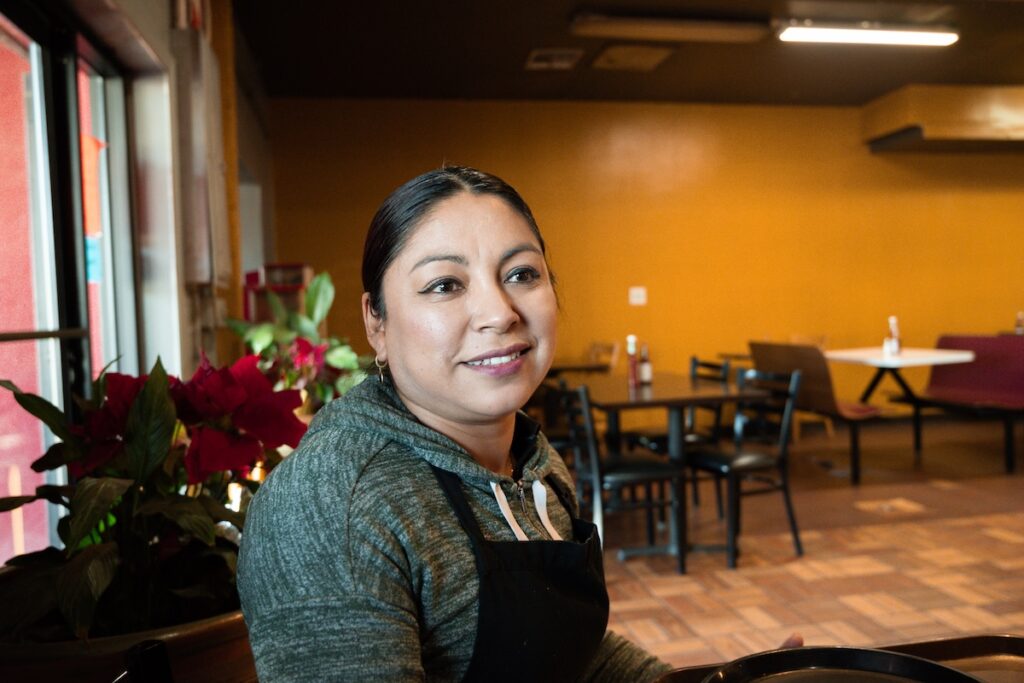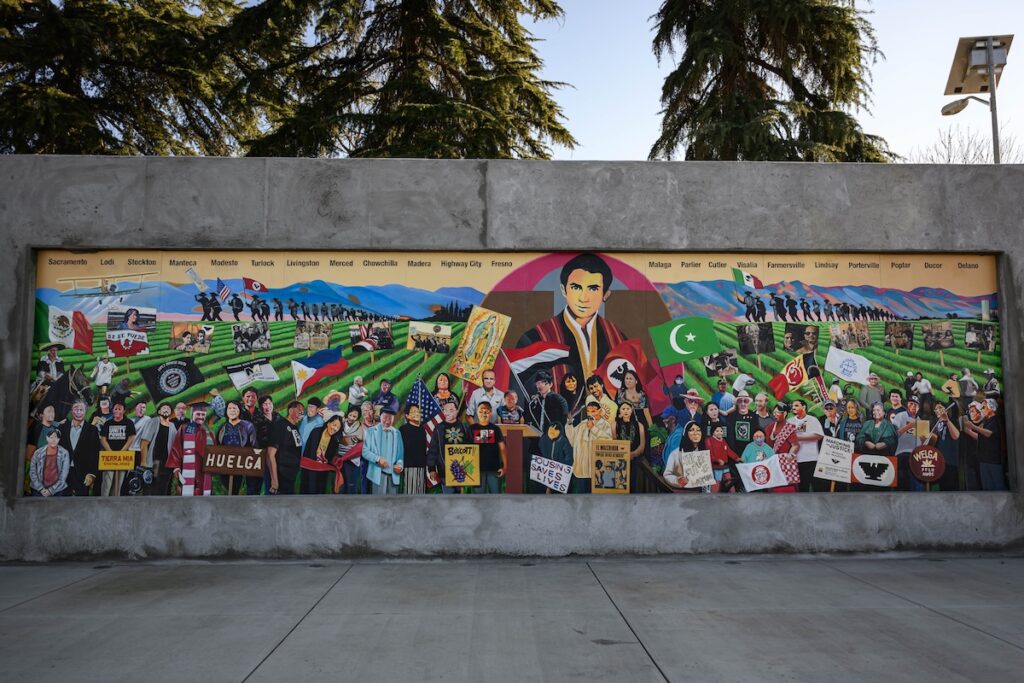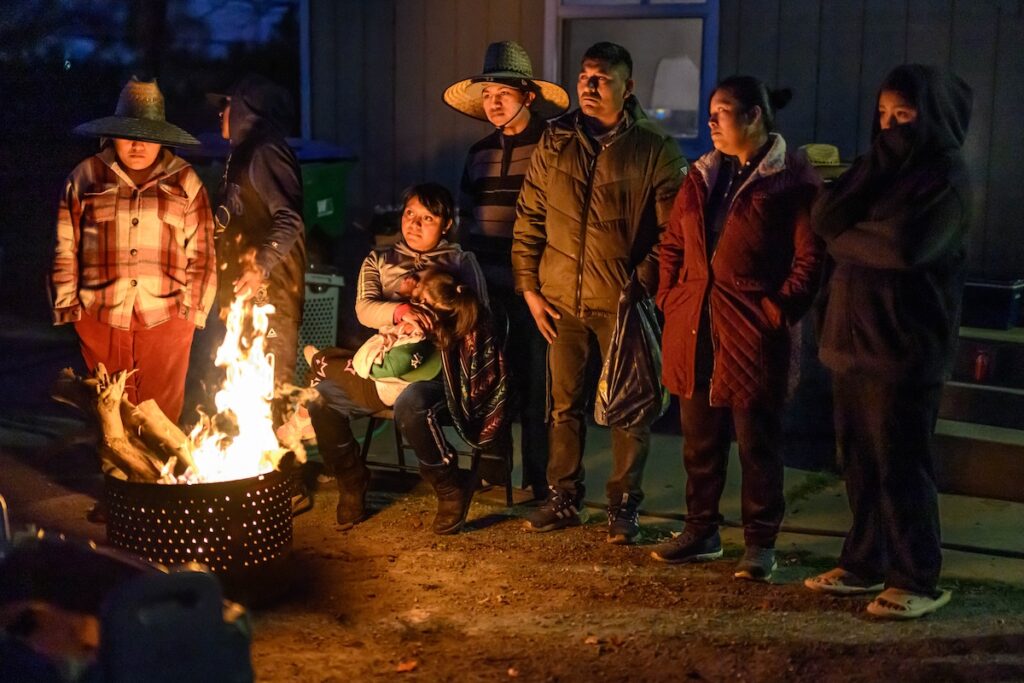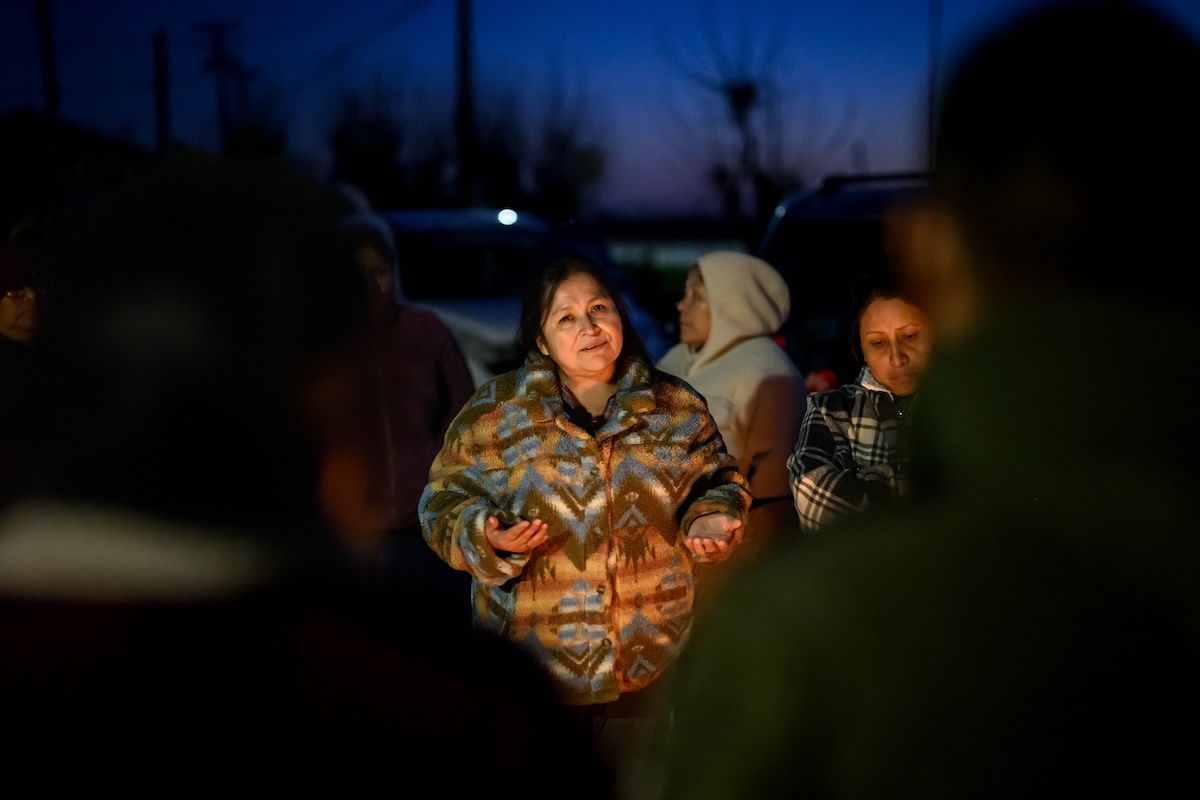POPLAR, Ca. – In the early 1970s, this unincorporated town in California’s agricultural heartland was designated by county officials as having “no authentic future.” That designation—entailing dramatic cuts to basic services—remained until as recently as 2023.
Now, following a series of raids on immigrants that began on Jan. 7 in neighboring Kern County, residents here say the future does indeed look bleak.
“People are scared. They don’t want to come out. We’re all scared,” says Gregorio, a resident of Poplar for the past seven years and the owner of a local business that caters to the community’s farmworker population. (We are not using Gregorio’s last name to protect his identity.)
“If you’re undocumented, it’s not safe to walk the streets,” he added. “And this is just the start. It’s going to get worse over the next four years.”
With Donald Trump’s inauguration as President just days away, the raids—dubbed “Return to Sender” by Customs and Border Patrol (CBP)—are viewed here as a dress rehearsal for his promised mass deportation campaign of unauthorized immigrants.
CBP Agent Gregory Bovino, who led the raids, stated in a social media post that CBP officers maintained the right to make arrests of anyone suspected of being in the country illegally without regard to due process. He promised “more to come.”
CBP reports that some 78 arrests were made over the course of the three-day operation and included individuals with outstanding warrants for crimes ranging from sexual assault of minors to illegal drug and firearm possession, as well as DUIs and other lesser offenses.
CBP says the raids were confined to Kern County. But several Poplar residents say they witnessed CBP agents patrolling local gathering spaces in and around the town. Several individuals who asked not to be identified described agents apprehending one individual on private land.
Requests for comment from CBP to confirm the statements went unanswered by the time of publication. A spokesperson for the Tulare County Sheriff’s office said they were unaware of any operations or detentions within the county.
CBP spokesperson David Kim initially told news media that Operation Return to Sender was targeted to specific individuals and that it was not a widespread roundup. He acknowledged, however, that individuals not previously identified for apprehension due to past criminal convictions were also detained.
“We don’t know what’s going on with the raids,” noted Gregorio, adding the swirl of misinformation online is exacerbating the panic residents are experiencing. “People are posting all kinds of lies on social media. Everyone’s confused over what is true and what isn’t.”
The fear now gripping the community in Poplar and across the region is also taking a toll on the local economy. Silvia (we are withholding her last name to protect her identity) says sales at her bakery have fallen 70% since the raids last week, as residents and families fear leaving their homes for even the most basic of necessities.
“It is stressful,” she noted. “If I don’t see someone for a day, let’s say a regular, I worry about what might have happened to them. Did they get detained, deported…”
Down the street at Sabroso Poplar, a local Mexican eatery, waitress Angelica Rana points to the empty dining hall. “Usually, this place would be full. Today, there’s no one here,” she says, adding that in her 18 years living in Poplar she’s never seen anything like this.
“We depend on the people who work in the fields. So yes, there’s been a big impact,” she said.

Poplar, with just under 2,000 residents, is located on the southeastern edge of Tulare County, one of the nation’s largest producers of dairy, citrus and berries, among other crops, a multi-billion-dollar industry built largely on the backs of migrant labor.
Two-thirds of Poplar’s residents are Latino, though there is also a long-established Filipino community, as well as a smaller Yemeni population and Indigenous migrants from parts of Mexico and Central America.
An estimated 310,000 people live in unincorporated communities like Poplar across the San Joaquin Valley.
In the 1950s and 1960s, the town was the site of some of the earliest stirrings of what would become the farm worker movement led by labor groups like the United Farm Workers Union (UFW), among others. That history is celebrated in a new mural in the local park, which depicts the many faces—past and present—of those who have fought to improve conditions locally.

“This was an epicenter of the farmworker movement and one of the areas that experienced the most violence,” explains Mari Pérez Ruíz, co-founder of the non-profit Central Valley Empowerment Alliance (CVEA), which advocates on behalf of residents in Poplar and surrounding communities.
CVEA is housed in what used to be Poplar’s fire house, shut down years earlier as part of cuts to local services after county officials identified it as among 13 communities with no growth prospects. All 13 were majority communities of color. Cuts included essentials like water and sewage. CVEA fought successfully to restore services for Poplar during California’s record drought ending in 2016.
“They did not make it easy,” noted Pérez Ruíz, referring to county officials and the outsized interests of local growers.

Today, she and her team are busy supporting families too fearful to go to work or send kids to school. CVEA has produced small, pocket-sized Know Your Rights pamphlets that detail steps to take in case someone is stopped by immigration officials, as well as contact numbers for legal aid.
On a recent evening, CVEA volunteers handed out food and clothing to a small community of Indigenous farmworkers on the outskirts of Poplar. Many spoke of lost wages during the previous week. “Why are they targeting us,” one man complained. “We’re doing honest work here, trying to feed our families.”
Gregorio says half of what people earn here typically goes to cover rising rents, with the other half going toward food, childcare and other expenses. “It’s impossible,” he says.
As for the mood among neighbors and customers, “It is the same conversation with everyone you meet,” he said. “How are you?” “Scared.”
Manuel Ortiz, Ed Kissam and Nicolás Díaz Magaloni contributed reporting for this story.













